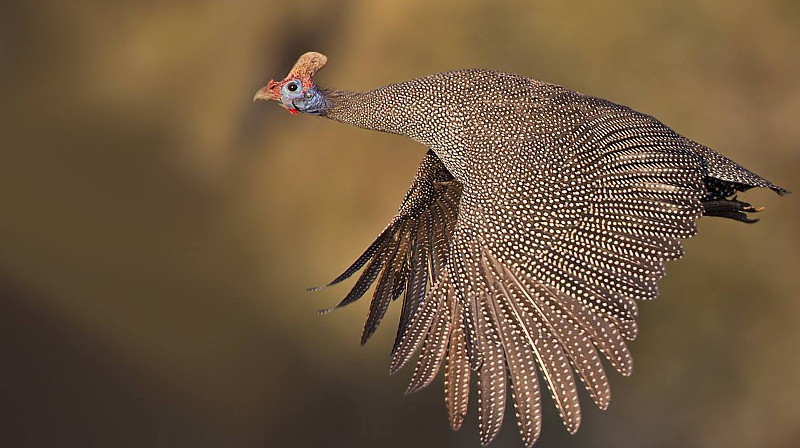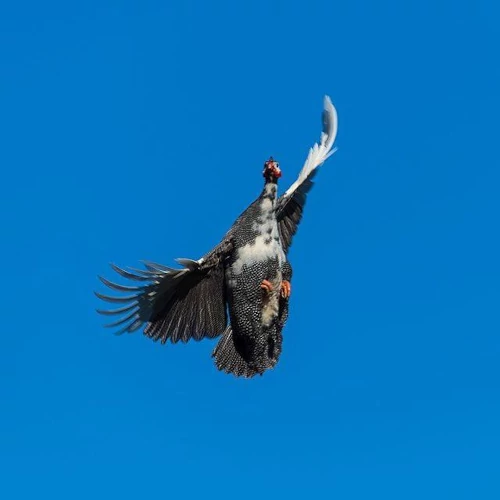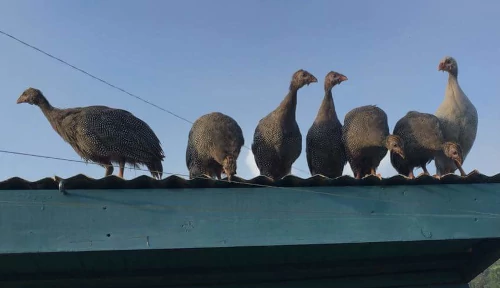Do Guinea fowl fly?

I have had 4 Guinea fowl fly away in my time as a keeper.
Guinea fowl have bigger wings than chickens and can fly very well and can cover long distances in the air. In the wild Guineas prefer to be on the ground and will only fly to escape a predator or to roost in the trees at night. They have a habit of flying almost vertically up into the sky when surprised. If you have surplus males in your flock, some may leave to look for a mate.
Below: A Guinea fowl in full flight.

Most keepers who have kept Guineas have had at least one fly away for no reason. Guineas are more wild than chickens and much more difficult to tame and will sometimes just leave.
Below: Guineas are happy to be up high, these have flown up to a roof.

Why do Guinea fowl fly?
Guineas fly only to escape predators and get into trees to roost at night.
The most common reason that a domestic Guinea fowl will fly is that it has been startled or frightened by sudden movements. When this happen they explode into the air making a fantastic amount of noise.
Below: A flock of Guinea fowl taking flight.

Young Guinea fowl fly exceptionally well, even as young as three weeks old.
How to keep Guinea fowl from flying away:
There are a few things backyard poultry keepers can do to keep Guinea fowl from flying away.
- Give them routine. Late afternoon treats near the coop to bring them home.
- Raise keets with chicks. The keets will grow up with chickens habits and hopefully be easier to tame with food.
- Raising keets with a mother hen also works for the same reason. Using a friendly broody hen will result in tame keets that are used to their keeper and much more likely to stay at home.
- Confine them to a run for the first 30 days at least. Guineas take longer to learn where home is than chickens.
- Provide a spacious coop with high perches for roosting. Happy Guineas are more likely to stay.
- Clip the feathers on one wing. This destabilises them in flight.
- Don't startle them or make sudden movements.
- Don't keep Guineas in large flocks. More than 30 birds in a flock of Guineas is stressful for all members and the flock may split.
- Keep the food in or near the run so the Guinea fowl have to come home to feed.
- Don't keep surplus males, they tend to leave to look for a mate.
You may only need to clip their wings once when young, once they get used to their environment they will be happier.
If Guinea fowl fly over the fence into the neighbours yard, they will likely fly back when they get lonely or hungry or it gets late in the day.
